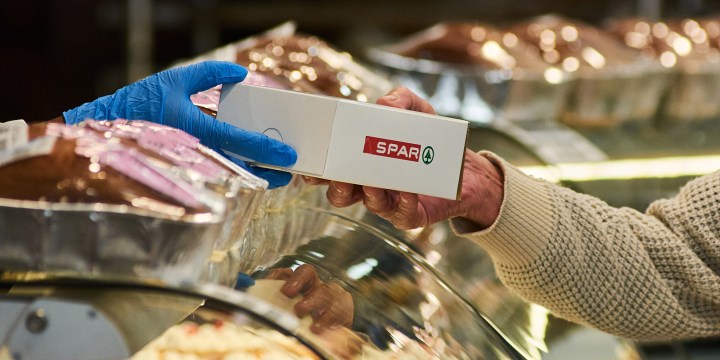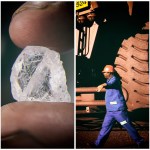COMPANY REPORT
Botched software system roll-out, power issues and inflation cost Spar dearly

While the installation of solar power plants has helped to ease some pressure on the business, other inflationary cost pressures from fuel, energy and problems with a new IT system continued to bite.
Economic headwinds, cost pressures and issues with the roll-out of new SAP software have cost the Spar Group dearly in recent months.
Spar released its interim results yesterday, for the six months ending 31 March 2023, revealing it grew sales by 7.9% (compared with the same period last year) and increased turnover to R72.9-billion. But earnings are down by almost a third, owing to economic headwinds and cost pressures.
It said over the past 12 months, it had suffered significant cost pressures, coupled with the SAP software go-live issues at its KwaZulu-Natal distribution centre, which resulted in a loss of turnover during the latter half of the period, with a 17.5% decline in operating profit to R1.5-billion.
With interest rates rising in all geographies, the group’s finance costs on debt and overdrafts increased. Diluted headline earnings per share declined by 30.2% to 447.7c
Because of these issues, the board had opted not to declare an interim dividend.
In the past six months, the group has opened about 58 new stores.
The retail group said that while the installation of solar power plants across all its distribution centres had helped to ease some pressure on the business caused by incessant rolling blackouts, other inflationary cost pressures from fuel, energy and the “temporary go-live challenges of a new SAP IT system” continued to bite.
‘Go-live issues’
Resolving the outstanding SAP software issues was an urgent priority for the group in the KZN region. The group commenced the launch of the new SAP software system in KZN in October 2022, with the go-live in February 2023. But the transition has resulted in various go-live and integration issues, which has plagued distribution operations in the province. Stock deliveries were interrupted, causing a significant impact on retailer loyalty in the region. The group has taken action to improve supply to retailers’ stores, including servicing these stores from the Eastern Cape, South Rand and North Rand distribution centres, direct-to-store deliveries, as well as the increased use of supplier dropshipping channels.
The impact of the SAP go-live issues amounts to R786-million of lost wholesale turnover during the period. Spar said it was resolving these issues with the assistance of SAP specialists. “The roll-out of SAP has been delayed in other regions until all issues at the KZN DC have been completely and satisfactorily resolved,” it said.
Mike Bosman, executive chairman of the Spar Group, estimated that running generators had cost retailers more than R700-million in six months. That’s putting enormous stress on franchisees. “If load shedding continues at these high levels, this could amount to well over R1-billion this year. Helping to ensure food security in South Africa is also top of mind for us as a national imperative and we take our role in this very seriously.”
The Spar Group’s wholesale grocery business reported sales growth of 7.9% compared to a 4.6% increase in the same period last year.
A ‘yes’ for Encore
Among its highlights were the Competition Commission’s approval on 18 December 2022 of the acquisition of the remaining 50% share in private label specialist Spar Encore (including the merchandising business Spar Engage), which became effective on 1 April 2023.
Spar Encore helps source, pack, warehouse and deliver private-label products to the group. These private-label products range from perishable to non-perishable products and general merchandise such as sugar, dairy products, chicken, frozen chips, cheese and tissues.
The acquisition would help enable improved vertical integration of Spar’s supply chain and consolidation of the private label business, Bosman said. Spar private-label sales delivered growth of 10% for the period.
“Extremely exciting times lie ahead for this business as we put the finishing touches on the structure and growth strategy for this part of the business that brings to life our belief that Spar products are as good as the best for less. It will be hugely beneficial in terms of cost-savings to those grappling with the 14-15% food inflation,” he said.
The group’s new on-demand shopping platform for groceries and liquor, Spar2U, is showing momentum among retailers and customers, with the platform now covering 234 sites, with plans for 400 sites by the end of September 2023, the group said.
Spar Southern Africa reported an increase in turnover of 5.6%, which had come under pressure from a constrained consumer environment owing to high levels of rolling blackouts, the high jump in liquor sales in the previous comparative period, the loss of turnover from the SAP software go-live and a weaker trading performance from Build it.
The Spar core grocery business reported sales growth of 7.9% against (internally measured) wholesale price inflation of 10.8%.
Expense account
Operating expenses for the group increased by 14.7% to R8.7-billion. For Spar Southern Africa, expenses increased by 17.2%, with the major cost drivers during the period being employee, IT, marketing, and fuel and distribution costs. Fuel and distribution costs increased by 26.9%, owing to the increase in the fuel price and increased diesel consumption because of rolling blackouts. Employee costs were up by 9.1%, IT costs increased by 50.8% and marketing costs increased by 19.2%.
Tops at Spar saw a 1.9% decline in liquor sales, after earlier enjoying a 41.6% bump in growth in the prior comparative period due to the scrapping of the Covid-19 liquor restrictions in September 2021. Tops has the most liquor retail outlets in South Africa, ending the period with 898 stores (up from 879 stores in 2022).
Build it sales were down 3.8%, which the group said was a “credible performance”, as the building sector came under pressure.
Right medicine
Its pharmaceutical businesses, Pharmacy at Spar and the specialised pharmacy Scriptwise courier, which delivers high-value medication for high-risk, high-cost patients, grew turnover by 20%.
Leading food retailer the BWG Group, which operates in Ireland and South West England, increased turnover by 8.8% for the period in euro terms, and 15.1% in rand terms. Both markets were under pressure from higher costs of living, ongoing food price inflation, higher interest rates and increased energy costs.
In Switzerland, turnover was down by 4.3% in Swiss franc terms and increased by 6.9% in rand terms, against the previous comparative period, while Spar Poland turnover was up 4.5% in the złoty-denominated currency and 9.3% in rand terms. DM


















Comments - Please login in order to comment.